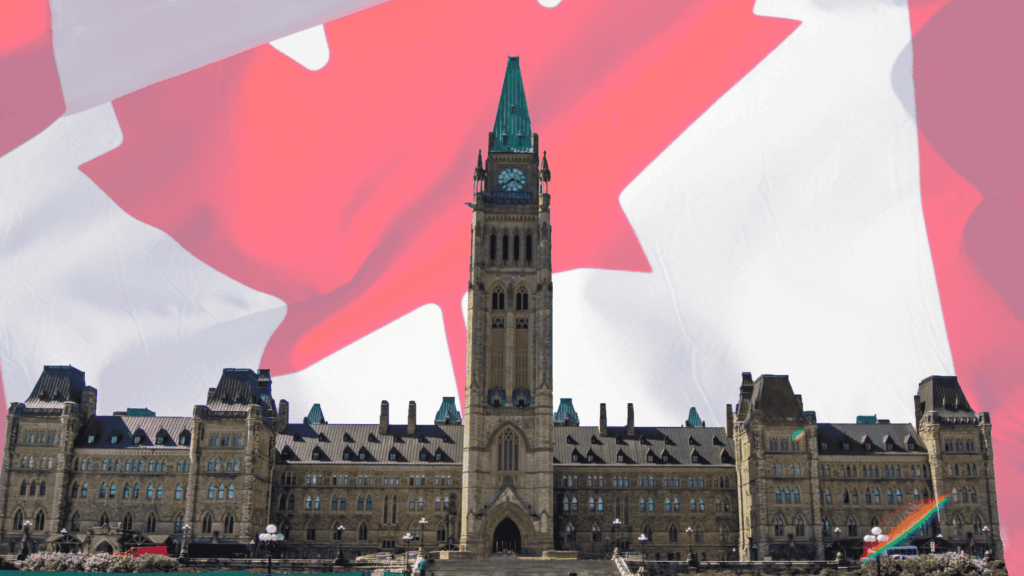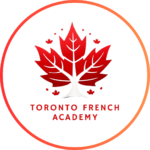🇨🇦 How Learning French Can Boost Your CRS Score for Canada PR
Thinking about immigrating to Canada through Express Entry or another PR pathway? 🇨🇦 You’re not alone—millions of applicants from across the globe are trying to earn those valuable Comprehensive Ranking System (CRS) points. But here’s a secret weapon many overlook: French for Canada PR.
In this in-depth guide, we’ll break down:
✅ Why French matters for Canadian immigration
📈 How many CRS points you can earn
📘 What tests you need (like TEF Canada)
🧠 How to start learning French—even from scratch
🎯 Pro tips to make your application stand out
Let’s get started with everything you need to know about French for Canada PR.
🎯 What Is the CRS Score?
The CRS (Comprehensive Ranking System) is the points-based system used to rank immigration candidates in Canada’s Express Entry pool. You’re ranked based on:
Age
Education
Work experience
Language proficiency (English and/or French)
Adaptability (spouse’s profile, job offer, etc.)
The higher your CRS score, the more likely you are to receive an Invitation to Apply (ITA) for permanent residence.
🧠 Pro Tip: Adding French to your profile can give your score a major boost, especially if your English scores aren’t perfect.
🇫🇷 Why French Is So Valuable for Canadian PR
Canada is officially bilingual (English and French), and the government is actively encouraging more French-speaking immigrants—especially outside Quebec.
👉 Immigration, Refugees and Citizenship Canada (IRCC) awards additional CRS points for French skills, even if French is your second official language.
So, if you’re serious about PR, consider adding French for Canada PR as part of your strategy. It’s not just a language—it’s a competitive advantage.
💪 Still on the Fence? Here's Why You Should Start Learning French Now
You might be thinking:
“Is it really worth investing time into French if I already have a decent CRS score?”
Yes — and here’s why:
💡 Cutoff scores fluctuate. One month you’re eligible, the next you’re not.
🚀 French adds flexibility. It opens up multiple immigration streams beyond just Express Entry.
📬 You get faster ITAs. Applicants with French proficiency often get picked sooner—even with lower overall CRS scores.
🏆 You stand out. Most applicants focus only on English. Mastering French for Canada PR puts you ahead of the crowd.
Every week you delay is a missed opportunity. Start small—even 15 minutes a day.
🏛️ French-Speaking Pathways: Provincial Nominee Programs (PNPs)
Beyond Express Entry, Canada offers French-friendly PNP streams that prioritize bilingual or French-speaking candidates.
🌟 Key Programs:
| Province | Stream Name | French Advantage |
|---|---|---|
| Ontario | French-Speaking Skilled Worker Stream | Lower CRS threshold |
| New Brunswick | Strategic Initiative for Francophones | Community-driven preference |
| Manitoba | Francophone Stream (MPNP) | Dedicated French-only stream |
| Nova Scotia | Express Entry – Labour Market Priorities for Francophones | Targeted draws |
These programs reward applicants with French skills, even if their CRS is below the federal cutoff. That’s why French for Canada PR gives you extra safety nets.
📉 What If I Don’t Have Time for Full Fluency?
Good news: you don’t need to become fluent to earn PR-worthy points.
Your goal is NCLC 7, which is equivalent to intermediate (B2). Many learners reach this in 6–12 months with consistent study.
Here’s how to get there faster:
✅ Focus on high-frequency vocabulary
✅ Master exam patterns
✅ Work with a TEF-specific tutor
✅ Practice writing under timed conditions
A smart, structured plan will always outperform random study.
🧳 Bonus: Career & Life Benefits of Learning French in Canada
Besides boosting your PR chances, knowing French for Canada PR unlocks long-term benefits:
💼 Career:
Higher salaries in bilingual roles
More job offers in government, healthcare, education
Bilingualism bonuses in civil service roles
🏫 Education:
Access to top universities like Université de Montréal, Laval, Ottawa U
Scholarships and grants for Francophone studies
🌆 Lifestyle:
Easier integration into Quebec and Francophone communities
Dual-language confidence in daily life
Greater cultural access and networking
When you invest in French for Canada PR, you’re also investing in your Canadian future.
📊 CRS Bonus Points for French Language Proficiency
Let’s break down the actual numbers.
🔹 CRS Points for French – Second Official Language:
If you score:
NCLC 7 or higher in all four abilities (reading, writing, listening, speaking):
➤ 25 additional pointsNCLC 7 in French + CLB 5+ in English:
➤ 50 additional points
That’s right—50 points could be the difference between waiting 2 years… and getting your PR next month.
This is why more applicants are now focusing on French for Canada PR as a serious investment.
. 💬 What Are NCLC and CLB?
NCLC (Niveaux de compétence linguistique canadiens): French language levels
CLB (Canadian Language Benchmarks): English language levels
Both are measured from Level 1 (basic) to Level 12 (native-like fluency).
To get CRS points from French, you’ll need NCLC 7, which is equivalent to B2 level under the CEFR system.
🧾 What French Test Should You Take?
To claim CRS points, you must take an IRCC-approved French test. The two most accepted are:
✅ TEF Canada (Test d’évaluation de français)
Widely accepted for Express Entry
Tests listening, reading, writing, and speaking
Results valid for 2 years
✅ TCF Canada (Test de connaissance du français)
Also accepted, similar structure
Slightly different scoring pattern
📝 Note: Only official test results are accepted by IRCC—no self-declaration or certificates from language schools will qualify.
Taking the right test is a key step in your journey through French for Canada PR.
🧠 What’s the Minimum Level to Get Points?
To earn any points, you must score at least NCLC 7 in each component:
| Skill | NCLC Level 7 = TEF Canada Score |
|---|---|
| Listening | 310–348 |
| Reading | 207–232 |
| Writing | 310–348 |
| Speaking | 310–348 |
📈 If you go beyond that—like NCLC 9—you don’t get extra French points, but it improves your overall language profile, making you more competitive.
🚀 How to Learn French – Even If You're Starting from Scratch
You might be thinking:
“I’ve never studied French. Isn’t it too late?”
Absolutely not! 🙅
Many successful applicants began learning French just for immigration purposes and achieved B2 level in under a year.
Here’s how to approach French for Canada PR, even as a beginner:
📚 1. Set a Clear Goal
🎯 Example: “I want to reach NCLC 7 in all TEF components in 8–12 months.”
🗓️ 2. Create a Study Plan
✅ Daily Practice: 30–60 minutes
✅ Mix of reading, writing, listening, and speaking
✅ Take mock tests monthly
📱 3. Use the Right Tools
| Tool | Purpose |
|---|---|
| Duolingo / Babbel | Vocabulary & grammar basics |
| TV5MONDE / RFI | Listening practice |
| Français Authentique | Speaking & comprehension |
| Preply / iTalki | Speaking with tutors |
| YouTube (TEF prep) | Exam techniques |
🧪 4. Take Mock TEF Exams
Practice tests help you get used to:
Time pressure
Question types
Formal French expressions
You can’t master French for Canada PR without understanding the test format.
👨🏫 5. Work with a TEF Coach
If you’re serious about maximizing your score, work with a French coach or TEF expert. Personalized guidance can help you:
Focus on high-impact areas
Avoid common exam traps
Improve faster
🎯 One-on-one coaching is a game-changer for French for Canada PR.
📌 Real Example: How French Boosted One Applicant’s CRS
Priya had a CRS score of 441 with IELTS CLB 9, a master’s degree, and 3 years of work experience. She was stuck below the draw cutoffs.
She started learning French and scored NCLC 7 on TEF Canada after 9 months.
🎉 Her new CRS: 491
💌 She received an Invitation to Apply (ITA) within 2 weeks.
Her secret? Strategic planning + investing in French for Canada PR.
❓ FAQs – French for Canada PR
Q1: Can I get Canada PR with only French and no English?
✅ Yes. You can apply through French-speaking streams or PNP programs like Ontario’s French-Speaking Skilled Worker Stream—especially if your French is strong (B2+).
Q2: Is TEF Canada hard?
🧠 It depends on your preparation. Many find the writing and speaking sections the most challenging. But with 6–12 months of focused study, most learners can reach NCLC 7.
Q3: What happens if I only get NCLC 6 in one skill?
Unfortunately, you won’t receive the CRS French points unless you score NCLC 7 in all four skills. It’s all or nothing. That’s why targeted prep is essential in your French for Canada PR strategy.
Q4: Can I retake TEF Canada?
Yes! ✅ You can take the TEF Canada as many times as needed. IRCC only considers your best valid score.
Q5: Is French useful for Provincial Nominee Programs (PNPs)?
Absolutely! Provinces like Ontario, New Brunswick, and Manitoba give special preference to French speakers. Some PNPs even prioritize French candidates with lower CRS scores.
Q6: Can I choose TCF Canada instead of TEF?
✅ Yes! TCF Canada is accepted equally for Express Entry and other PR pathways. Some applicants prefer it because they find the structure easier.
Q7: Will I need to know Quebec-style French?
No. TEF and TCF Canada test standard international French. Quebec French is more useful after you arrive—especially for local jobs or education.
Q8: Are French points valid for spouse/common-law partner too?
Yes! If your spouse takes TEF or TCF and scores well, you can gain extra adaptability points. Encourage your partner to learn with you!
Q9: Does IRCC prefer TEF over TCF?
No. Both are treated equally by IRCC. Choose the one you’re more comfortable with or can access easily in your region.
Q10: How much does the TEF Canada test cost?
💰 The average cost ranges between $300–$400 CAD, depending on the test center. Prep costs are additional, but often well worth the PR payoff.
✍️ Recap: Why You Should Start Preparing French for Canada PR Today
If your CRS is under 500 or you want more options, French is your ace card. Here’s a quick reminder:
🔹 Up to 50 extra CRS points
🔹 More eligibility for PNPs
🔹 Career and education benefits
🔹 Priority processing and selection
🔹 Competitive edge over thousands of applicants
🧭 Summary: Why You Should Learn French for Canada PR
If your CRS score isn’t quite enough—or you want to increase your chances drastically—investing in French for Canada PR is a proven, powerful move.
✅ Up to 50 extra CRS points
✅ Eligible for more PR streams
✅ Sets you apart from other applicants
✅ Boosts your adaptability and employability in Canada
🎯 Final Tips to Succeed with French for Canada PR
🔁 Consistency is key—study daily
🧠 Focus on all 4 TEF skills equally
💬 Practice real conversations
🧪 Simulate test conditions often
👩🏫 Consider getting professional help for faster results
📥 Ready to Take Action?
If you’re preparing for Express Entry or any PR stream, don’t overlook the power of French for Canada PR. It’s more than just a language—it’s your shortcut to permanent residency.
🎓 Start today:
Take a placement test
Download TEF prep materials
Book a TEF-focused French class
Set a timeline and track your results
🇨🇦 Bonne chance on your Canadian dream!
Still scrolling? Here’s what you can do today:
📥 Download a TEF Canada prep checklist
📞 Book a free demo French lesson
📘 Buy a TEF-specific prep book
📅 Set your NCLC 7 goal timeline
💬 Join a WhatsApp group for French learners
Remember: Every week you wait, someone else learns French and moves ahead of you in the pool.
Let French for Canada PR be your shortcut to permanent residency — and your new life in Canada 🇨🇦.
Trusted Resources for French Learners


